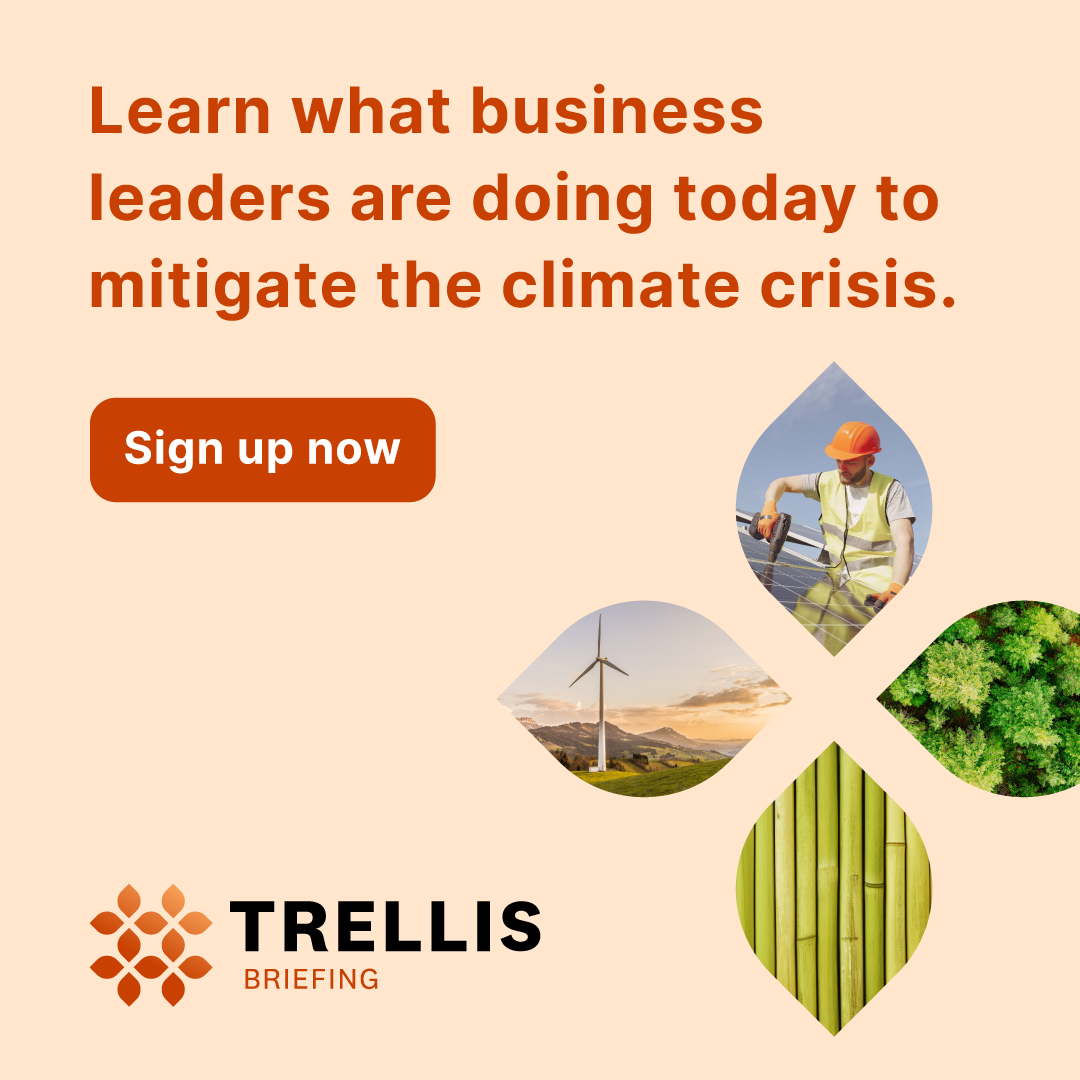A roadmap for doing green business in the Trump era
The incoming administration has many sustainability professionals are on edge. Here's how to navigate the turbulent seas ahead. Read More

Many people have concluded the election of Donald Trump spells doom for corporate sustainability and ESG. But we’ve just completed intense research where we spent time with dozens of chief sustainability officers, and we’ve learned that sustainability leaders have been building the wherewithal to manage the coming challenges, and ensure progress made over the past eight years doesn’t vanish.
Donald Trump’s first term in office unexpectedly created a boost for the profession of corporate sustainability. As government stepped back, it put pressure on businesses to step up. However, it’s a mistake to expect a redux. His campaign made promises to the small but loud anti-ESG and anti-DEI constituencies that backed him. Thus, we should prepare for pushback against corporate ESG and DEI activities.
We’re already hearing murmurings that environmental and social activists are preparing a strategic response that could turn their focus away from challenging Trump directly and back to pressuring big business to lean into climate action, protect human rights, and expand ESG disclosures. For the next two years at least, the choices that companies make related to sustainability will have no safe harbor with the political right or left. Choosing to lead, follow or get out of the way will each offer fraught, tension-filled tradeoffs. Staying quiet and out of the limelight will have almost as much potential to backfire — putting reputation, brand, and revenues at risk — as stepping out front to take environmental and/or social leadership.
Simply put, government relations and external communications are about to become two of the most important departments in your company. Their mandate: keep the company out of the maelstrom, away from social media storms, off cable news chyrons and away from Congressional hearings. That will mean paring back communications, disclosures and programming related to everything from ESG to DEI.
How, then, should a sustainability leader navigate between this rock and a hard place? Every choice to do something or nothing may feel existential and paralyzing. Our research finds that success comes from leaning into the tensions and tradeoffs among economic, environmental, social, political, and reputational considerations. By using a framework we call Sustainability Tension Management (STM), companies can optimize the balance of profits, people and planet regardless of the current environment. Here’s how to navigate the turbulent seas ahead.
Fall in love with impact and ignore terminology.
Our research confirms that the sustainability movement has entered its impact era, or a time when stakeholders demand to see tangible results. Now more than ever, the job of the CSO isn’t to advocate for “ESG” or “sustainability,” or to adhere to a specific reporting framework. Instead, sustainability leaders should focus ruthlessly on impact and outcomes for material ESG topics. Don’t let terminology and trivial arguments distract from the real purpose of sustainability.
Master the art of connecting the dots.
The Trump Administration and its stakeholders intend to use legal and policy instruments to penalize ESG investing. Law firms are advising ESG fund managers to “keep lawyers close” for fear of the use of federal antitrust law on such investing. The new administration will likely back out of the Paris Agreement and undo or ignore environmental and social policy agendas. In this context, advancing sustainability will require a strong business case. STM leaders are excellent at developing and promoting a mix of three core business cases: 1) showing that sustainability as a feature of the corporate value proposition will drive competitive advantage; 2) showing that sustainability will reduce operating costs; 3) showing that sustainability will drive new growth opportunities.
Making a robust business case will enable sustainability teams to justify increased capital and operational expenditures. It will also help justify to stakeholders, media and government officials the environmental and social commitments the company makes.
Bring back stakeholder engagement.
In an increasingly chaotic world experiencing rising temperatures, growing polarization, increased inequality and political and social crises it will become more important than ever to have friends and allies. A study from Penn State/ROKK Solutions shows that the U.S. population is much more aligned and supportive of ESG and DEI than mainstream stories and politicians would have us believe.
Companies therefore need to rebuild the muscle of stakeholder engagement that has atrophied in an era of ESG-related data, disclosure, and ratings. STM leaders will need to ask: who are the allies the company needs to make to thrive and win in a world that increasingly requires more sustainable behaviors?
Make no mistake – had Harris won, the seas for sustainability would still be turbulent. But with a Trump Administration, they may feel like tsunamis. Focusing on impact, a business case and stakeholder engagement is a key step to get started.
In the coming weeks, we’ll be sharing more about our research and approach to STM, along with examples of what good looks like in the current era. Sustainability professionals may feel overwhelmed with tension and anxiety. But take heart, as one of our interviews pointed out, “traction requires friction,’ and the tools sustainability professionals and their corporate supporters have been building over the past few years are just what will be needed to advance the effort to build business and societal value.
[We’re thrilled to offer an entire tutorial session on this topic at GreenBiz 25, led by Jeff Senne, Steve Rochlin and more sustainable business thought leaders. Get access to this tutorial, and over 75 other sessions designed to help you take your sustainability strategies to the next level. Use discount code GB25EDITORIAL for 10% off your All-Access Pass.]













